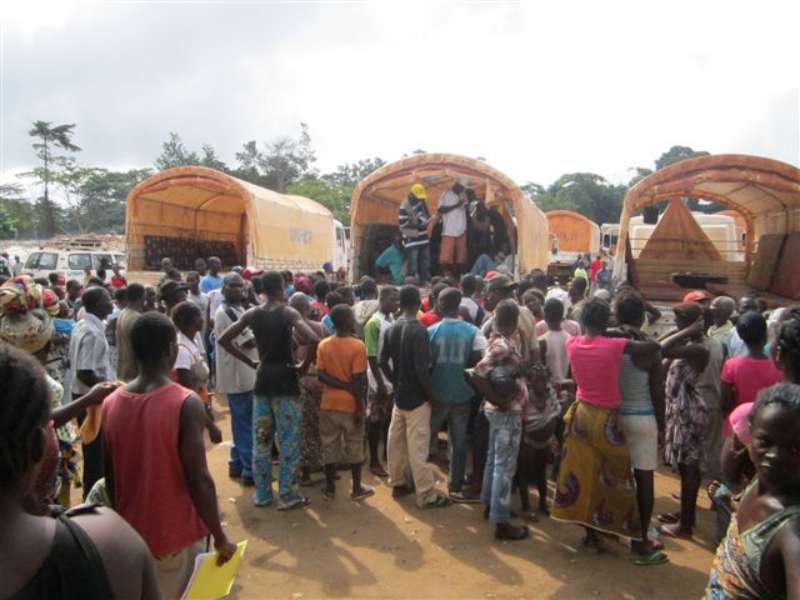The Ghana Refugee Board (GRB) says it has received intelligence report that some Ivorian refugees living in refugee camps in the country are planning mayhem over irregular food rationing.
The Programme Coordinator of the Board, Mr. Tettey Padi, therefore warned the disgruntled Ivorian to refrain from the act to avoid a brush with the law.
Even though the political upheaval in Cote d’Ivoire has ended, there are 9,631 Ivorian refugees and 1,077 asylum seekers living in camps at Ampain, Egyeikrom and Fetentaa in the Western, Central and Brong Ahafo regions respectively.
It is estimated that there are 800,000 African refugees and 51.2 million globally who have been receiving humanitarian services from the United Nations High Commission for Refugees (UNHCR) and other donor agencies.
Mr. Padi said this at the Ampain Refugee Camp in the Ellembelle District when the Japanese Ambassador, Mr Naoto Nikai, handed over projects funded by the Japanese government to the management of the camp on Thursday.
The information and communication centre, beauty care centre, transitional shelter, water points, sanitation and educational facilities, as well as skill training and livelihood empowerment program were funded by the Japanese government to make the refugees self-reliant.
Chansa Kapaya, Country’s Representative of the UNHCR, said due to global economic crisis and conflicts in Syria, Chad, Southern Sudan, Central African Republic and other parts of the continent, it had significantly impacted on its funding of humanitarian services globally.
She said the agency was working to restore regular food rationing for refugees and asylum seekers worldwide and, therefore, condemned any intended violent act by refugees and asylum seekers living in Ghana and other parts of the world.
Kapaya said the UNHCR would not hesitate to revoke the refugee status of any refugee who would engage in any violent act or would contravene the laws of the host countries and UN convention on refugees.
Madam Kapaya said the UNHCR had launched an appeal to solicit for over $180 million dollars from donor agencies in order to provide essential and basic needs to refugees globally in view of the budgetary constraints currently facing the agency.
She mentioned some challenges facing the UNHCR as inadequate transitional shelter, sanitation and hygiene facilities, health centres and education infrastructure.
Mr Nikai pledged the commitment of the Japanese government to support the operations of the agency towards providing essential and basic needs of the refugees.
Source: GNA


